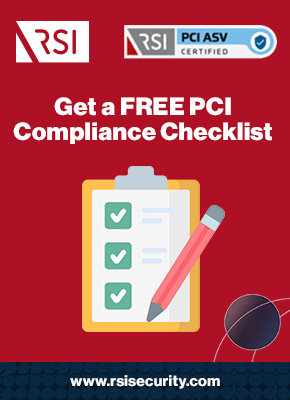Organization-wide adherence to PCI compliance is critical to protecting sensitive cardholder data from cybersecurity threats. PCI certification training can help increase employee awareness and understanding of PCI security frameworks, ultimately strengthening your organization’s PCI data security. Read on to learn more about the various PCI certification training modules.
What Does PCI Certification Training Involve?
The Payment Card Industry Security Standards Council (PCI SSC) requires organizations that process card payment data to protect the sensitivity of the cardholder data (CHD) they process. PCI certification training helps these organizations build the internal capacity and expertise to protect CHD.
Factors to help decide whether your staff needs PCI certification training include:
- Overview of PCI DSS Requirements
- Types of PCI certification training
- Considerations for PCI certification training
PCI certification training can help your organization streamline all aspects of the compliance process, especially with guidance from a PCI compliance advisor.
What are the PCI DSS Requirements?
PCI certification training can help your organization expand employee awareness of PCI compliance framework requirements.
Although there are multiple PCI compliance frameworks, the most widely applicable is the PCI Data Security Standards (PCI DSS), which concerns all companies that accept payments via:
- Credit cards
- Debit cards
- Select payment processing software
The PCI DSS v3.2.1 comprises 12 Requirements, grouped into six goals, including:
- Securing Networks and Systems
-
-
- Requirement 1: Install firewalls to secure cardholder data.
- Requirement 2: Change vendor-supplied passwords and security configurations.
-
- Protecting cardholder data
-
-
- Requirement 3: Protect stored cardholder data.
- Requirement 4: Encrypt cardholder data for secure transit over any open networks.
-
- Vulnerability management
-
-
- Requirement 5: Implement anti-malware and antivirus protections and regularly update them.
- Requirement 6: Develop systems and applications and maintain them.
-
- Strengthening access controls measures
-
-
- Requirement 7: Restrict access to cardholder data, except when necessary for legitimate business purposes.
- Requirement 8: Assign unique IDs to all users and authenticate them before permitting access
- Requirement 9: Implement physical security to protect access to cardholder data
-
- Monitoring and testing networks
-
-
- Requirement 10: Monitor and log all user access to networks and cardholder data.
- Requirement 11: Assess security systems and processes.
-
- Documenting and maintaining an information security policy
-
- Establish, update, and provide policies to all roles.
Compliance with the PCI DSS Requirements will help strengthen card payment security and mitigate threats and vulnerabilities to CHD. PCI DSS training and certification will help your staff better understand the scope of PCI protection covered under the PCI DSS Requirements.
Request a Free Consultation
Types of PCI Certification Training
Determining which PCI certification training program suits your organization’s compliance and security goals depends on your organization- or employee role-specific needs. Working with a PCI compliance advisor can help determine the appropriate PCI certification training program.

PCI Awareness Training
PCI Awareness Training is a more generalized PCI certification training program designed for anyone interested in learning more about compliance. The PCI Awareness Training program is an entry-level course, which equips your staff with the necessary tools to build a secure PCI environment.
Specific components of PCI Awareness Training include:
- An overview of the PCI requirements, covering:
- Role of PCI DSS requirements in improving data security
- Goals of PCI DSS compliance
- Roles played by parties involved in the PCI compliance process, including
- Internal Security Assessor (ISA)
- Qualified Security Assessor (QSA)
- Approved Scanning Vendor (ASV)
- PCI reporting overview
- Infrastructure requirements for PCI-compliant card payment processing, including:
- Acceptance of card payments
- Verification of secure payments
PCI Awareness Training can help orient employees on PCI compliance best practices and increase organization-wide adherence to PCI compliance policies. This course is designed more for non-technical roles that still require an understanding of their and their organization’s broad responsibilities. However, IT and cybersecurity professionals who do not have experience with the DSS framework also benefit from the overviews provided.
PCI Internal Security Assessor (ISA) Training
Unlike PCI Awareness Training, PCI ISA training is slightly more advanced and helps your staff learn how to conduct internal security assessments and participate in vulnerability remediation efforts. Additionally, individuals sponsored by their organizations to complete PCI ISA training are well-equipped to:
- Liaise with external auditors during compliance assessments and reporting
- Work with QSAs to determine best practices for PCI vulnerability remediation
Components of PCI ISA training include:
- Part 1 of the training provides a basic understanding of the PCI compliance process, covering:
- Role of the PCI SSC in PCI governance
- Card payment processing
- PCI roles and responsibilities
- Cardholder data processing
- Network segmentation processes
- PCI DSS self-assessment
- Following completion of Part 1, individuals can complete Part 2 of the training covering ISA qualification, which includes:
- Compliance with the PCI DSS (i.e., industry overview, terminology, transactions)
- Differences in reporting and validation requirements between card issuers
- Components of the PCI DSS framework (i.e., overview, testing procedures, compliance)
- Infrastructure for PCI hardware and communications
- PCI compliance reporting
- Application of compensating controls
- Developing PCI security policies
- Modifying CHD environments
Completing the PCI ISA training program offers several benefits, some of which include:
- A deeper understanding of the PCI DSS protections for customers and businesses
- Increased internal expertise to conduct PCI compliance self-assessments
- Enhanced security of payment card data processing
- Improved card processing and network segmentation methods
PCI certification training for internal security assessment will help increase the effectiveness of your internal compliance efforts.

PCI Professional (PCIP) Training
Your staff may also be interested in broadening their PCI expertise and can complete the PCIP training, which provides the capabilities to secure card payment processing. PCI certification training programs, such as the PCIP, provide career-long continuing education.
The components of PCIP training include:
- Overview of the PCI compliance frameworks, some of which include:
- PCI DSS
- Payment Applications Data Security Standards (PA DSS)
- PCI Pin Transaction Security (PTS)
- Developing an understanding of the PCI DSS Requirements
- Defining terminology used in the payment card industry
- Understanding the flow of payment transactions
- Prioritized approach to PCI risk management
- Applications of compensating controls
- Working with service providers and third-parties
- Completion of Self-Assessment Questionnaires
- Role of technologies in card payment processing, some of which include:
- Tokenization
- Virtualization
- Mobile applications
The benefits of PCIP training (for staff and organization) include:
- Staff can provide better support for ongoing compliance efforts based on their acquired knowledge of PCI compliance frameworks
- Professional advancement for staff, providing increased PCI compliance expertise
- Certification of completed training confers recognition
- Integration of staff into a community where knowledge and PCI best practices are shared
- Ability to earn Continuing Professional Education (CPE) credits
PCIP training can help your staff broaden their PCI expertise and significantly contribute to your organization’s compliance efforts. In addition, as one of the PCI certification training programs that provide continuing education, PCIP-certified staff can help guide your organization through updates to the PCI compliance process.
Considerations for Choosing a PCI Certification Training Module
The following considerations can help determine the appropriate PCI certification training modules for your staff:
- Compliance goals – Deciding which PCI certification training is beneficial to your staff depends on PCI compliance goals, including:
- Experience with PCI compliance (i.e., new to or well-versed with compliance processes and reporting)
- Organization growth level (e.g., slow or rapid expansion)
- Business operations (e.g., outsourced CHD processing)
- Internal expertise – Your staff’s PCI expertise determines which training program best achieves a streamlined compliance process. If you require in-depth compliance self-assessment, PCI certification training can help expand internal expertise.
- Budget – Since the PCI SSC charges for PCI certification training programs, your organization should determine which programs to invest in for staff participation.
Regardless of compliance goals, internal expertise, or budget, PCI certification training programs will help your organization get the best ROI on PCI compliance training.
Obtain Relevant PCI Certification Training for Your Staff
PCI certification training modules will equip your staff with knowledge, tools, and expertise to guide your organization’s PCI compliance efforts.
With the help of a leading PCI compliance partner, you can determine the relevant PCI certification modules that will benefit your staff and help achieve ongoing PCI compliance. Contact RSI Security today to learn more!
Download Our PCI DSS Checklist
Assess where your organization currently stands with being PCI DSS compliant by completing this checklist. Upon filling out this brief form you will receive the checklist via email.

